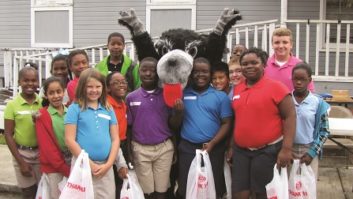The author is membership program director of the National Federation of Community Broadcasters. NFCB commentaries are featured regularly at www.radioworld.com.
Radio World has recently hopped in at the right time by leading some important conversations related to radio. In covering the strains that stations face in diversifying their workforces as well as tensions in noncommercial media over dozens of diversity scandals, fresh discussions with readers like you are starting.
Hiring and leadership development among early-career and diverse voices we want to bring in to our stations is one of the more perplexing matters. One reader said it best: we tried, but had a hard time finding the right person with the right skills. This leg of the journey stymies many well-meaning managers. How do we overcome the obstacle?
[Read: Community Broadcaster: Inclusive Service Is the Future]
It is important to approach recruitment with an eye to what you want to see. If you are looking to expand your pool of candidates, you may need to expand your methods for finding them. While personal references, traditional networks and ads in the usual places can be helpful, keep in mind that the people you’re looking for may not have access to the contacts you have, or know yet about the networks you do. A new college graduate, a person of color fresh to the industry or someone whose skills could strengthen your station may simply not have access to the colleague networks we do.
 Here’s one idea: have you thought about circulating job postings to groups like the University Station Alliance or College Broadcasters Inc., or reached out to a local university or community radio station? Many university licensees and student-run college radio stations have a steady stream of students who get radio training in many facets of the organization. Those campuses hand out diplomas to seniors each year, and those seniors go into an uncertain workforce. Having talked to many students at CBI’s conferences, I can tell you a lot of them would love to have a career in radio. They just do not realize it is a possibility, so they look elsewhere.
Here’s one idea: have you thought about circulating job postings to groups like the University Station Alliance or College Broadcasters Inc., or reached out to a local university or community radio station? Many university licensees and student-run college radio stations have a steady stream of students who get radio training in many facets of the organization. Those campuses hand out diplomas to seniors each year, and those seniors go into an uncertain workforce. Having talked to many students at CBI’s conferences, I can tell you a lot of them would love to have a career in radio. They just do not realize it is a possibility, so they look elsewhere.
Finding early career and diverse talent for your station may also require you to think deeply about your organization’s needs and screening. Each applicant should get the same questions about the role and be asked to perform tasks required for the position. You might want to be open to skills that translate well to jobs you’re hiring for. In addition, for entry- and mid-level positions, you may be open to more on-the-job training.
Similarly, leadership development is as much about who the candidate is, as it is about the manager identifying an employee’s strengths and helping them cultivate leadership abilities with appropriate mentorship. Those not traditionally associated with radio may not understand the nuances we do, and it takes an astute manager to see how a candidate or new employee’s talents translate to our work. That may not be simple, but it is rewarding.
Of course, some of the big-picture issues may be out of our hands. Owners and our own bosses need to give attention to recruitment and retention organization-wide, as well as helping staff as a whole to be culturally competent in our ever-changing workplace, where five generations now meet. We as well-intentioned managers play a role in being advocates and sounding boards to the higher ups on diversity as well.
Evolving our stations to meet the needs of our communities is exciting work. Those of you thinking about diversity and the cultural shifts we are seeing deserve praise. Just as someone long before took a chance on us, we are in a position to change someone’s life by creating opportunities.







